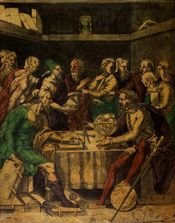|
|
You are not currently logged in. Are you accessing the unsecure (http) portal? Click here to switch to the secure portal. |
Difference between revisions of "Filippo Dardi"
m (10 revisions) |
|||
| Line 12: | Line 12: | ||
| deathplace = | | deathplace = | ||
| resting_place = | | resting_place = | ||
| − | | occupation = [[Fencing master]] | + | | occupation = {{plainlist | [[Fencing master]]{{#set: occupation=Fencing master }} | [[occupation::Professor]] }} |
| language = | | language = | ||
| nationality = [[language::Italian]] | | nationality = [[language::Italian]] | ||
| Line 42: | Line 42: | ||
| below = | | below = | ||
}} | }} | ||
| − | '''Filippo di Bartolomeo Dardi''' (died 1464)<ref name=Rubboli>[[Marco Rubboli | + | '''Filippo di Bartolomeo Dardi''' (died 1464)<ref name=Rubboli>[[Marco Rubboli]] and [[Luca Cesari]]. ''[[:File:The_Knightly_Art_of_Combat_of_Filippo_Vadi.pdf|The Knightly Art of Combat of Filippo Vadi]]''. Document circulated online.</ref> was a [[century::15th century]] [[nationality::Italian]] [[fencing master]]. He was an expert not only on fencing, but also astrology, astronomy, geometry, and mathematics.<ref name="Vadi">[[Philippo di Vadi]]. ''Arte Gladiatoria Dimicandi: 15th Century Swordsmanship of Master Filippo Vadi''. Trans. Luca Porzio and Gregory Mele. Union City, CA: [[Chivalry Bookshelf]], 2002.</ref> In 1412, he was licensed as a fencing master and opened a school in Bologna (in via Pietralata).<ref name="Vadi"/> In 1434, he wrote a treatise on fencing and geometry, and was subsequently given a professorship in geometry at the University of Bologna.<ref name=Rubboli/> Though Dardi's treatise has since been lost, he influenced a great number of prominent 15th century masters, including [[Antonio Manciolino]], [[Achilles Marozzo]], [[Angelo Viggiani]], and [[Giovanni dall'Agocchie]]. Dardi is often credited as the founder of the Bolognese school of swordsmanship, though there is evidence that he was preceded by earlier masters in the late 14th century.{{cn}} |
== Additional Resources == | == Additional Resources == | ||
| Line 51: | Line 51: | ||
{{reflist}} | {{reflist}} | ||
| − | |||
{{DEFAULTSORT:Dardi, Filippo di Bartolomeo}} | {{DEFAULTSORT:Dardi, Filippo di Bartolomeo}} | ||
| − | + | {{regional Italian traditions}} | |
| − | {{ | ||
[[Category:Masters]] | [[Category:Masters]] | ||
[[Category:Italian]] | [[Category:Italian]] | ||
Revision as of 00:23, 1 July 2015
| Filippo di Bartolomeo Dardi | |
|---|---|
| Born | late 1300s |
| Died | 1464 |
| Occupation |
|
| Nationality | Italian |
| Alma mater | University of Bologna |
| Movement | Bolognese swordsmanship |
| Influenced | Guido Antonio di Luca |
Filippo di Bartolomeo Dardi (died 1464)[1] was a 15th century Italian fencing master. He was an expert not only on fencing, but also astrology, astronomy, geometry, and mathematics.[2] In 1412, he was licensed as a fencing master and opened a school in Bologna (in via Pietralata).[2] In 1434, he wrote a treatise on fencing and geometry, and was subsequently given a professorship in geometry at the University of Bologna.[1] Though Dardi's treatise has since been lost, he influenced a great number of prominent 15th century masters, including Antonio Manciolino, Achilles Marozzo, Angelo Viggiani, and Giovanni dall'Agocchie. Dardi is often credited as the founder of the Bolognese school of swordsmanship, though there is evidence that he was preceded by earlier masters in the late 14th century.[citation needed]
Additional Resources
References
- ↑ 1.0 1.1 Marco Rubboli and Luca Cesari. The Knightly Art of Combat of Filippo Vadi. Document circulated online.
- ↑ 2.0 2.1 Philippo di Vadi. Arte Gladiatoria Dimicandi: 15th Century Swordsmanship of Master Filippo Vadi. Trans. Luca Porzio and Gregory Mele. Union City, CA: Chivalry Bookshelf, 2002.

